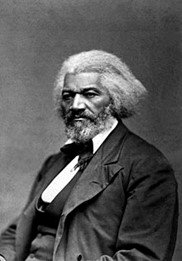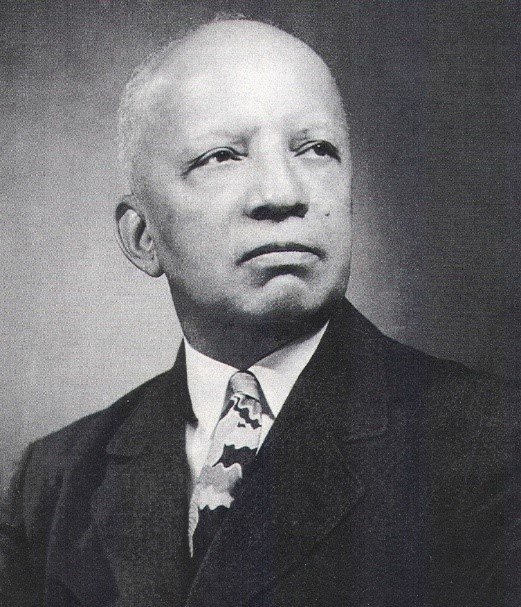A Challenge to Leave a Legacy: Black History Month Reflections
By Brian A. Thomas Ed. D
At 64 years young, I reflect on my past years with a high degree of gratitude. I am thankful for the long journey, and countless lessons learned thus far. I am at that stage of life where I can reasonably see where we as an African American community stand today.
Yet, I am reminded of the importance of understanding our history before we were enslaved, during slavery, and afterward. More importantly, our lack of knowledge also shapes our future.
Consequently, Black History Month offers us an annual reminder and gives us another opportunity to learn and connect with our history and the legacy of our great leaders. So let us consider some questions about our history. What do you know? What knowledge have you shared?
For example, do you know what Black Codes were? Or when or what was the Jim Crow era? Some of us think we know something about the Civil Rights Movement and Rosa Parks or Rev. Dr. Martin Luther King Jr. But what else do you know and what do you share with loved ones?
I've got to ask because some of this current generation know little or nothing about Greenwood/Black Wall Street, the Tusla Riots, the Chitlin Circuit, the Green Book, the Chicago or Watts Riots. What do our young people today know about Operation PUSH (People United to Save (later Serve) Humanity), the Black Panther Party, or the Student Nonviolent Coordinating Committee (SNCC).
Some think we know about Rodney King in Los Angeles or the current Black Lives Matter issues. But do you know about François-Dominique Toussaint Louverture, Nat Turner's Rebellion, or Gaspar Yagna's Rebellion? But, have you ever thought about the origins of our modern-day police force and practices and its relation to Patty-Rollers and slave patrols of the 1700s?
Then there is the historical issue of reparations and the recent legislation in California AB 3121(authored by one of my college professors, Dr. Shirley Weber) – creating a California Task Force to Study and Develop Reparation Proposals for African Americans. What do you know? What do you share?
Are you aware of cities like Austin, Texas, where approval of the city's 1928 Master Plan established Jim Crow-era segregation? That 1928 plan broke up at least 17 Black-led Freedom Communities across the city, seized the land for development, and forced Black Austinites into a so-called Negro District in East Austin. And according to an article published in the Austin Monitor in 2021, The plan effectively stunted Black residents' ability to create generational wealth by legally segregating the city's Black population across what is now Interstate 35. Austin has recently apologized for this injustice, but the economic damage remains.
While I am on it, have you ever explored influential African Empires like The Kingdom of Kush, The Land of Punt, The Kingdom of Aksum, or The Kingdom of Mali? And exactly where was/is Timbuktu, and why did Europeans go there? Out of the need to write upon something other than stone Africans (Kemites) invented paper (papyrus), the alphabet, ink, and even the pen. Africans developed previously unknown concepts in Mathematics that eventually led to the construction of the great pyramids. Have you considered the presence of Blacks - Africans in the Bible?
My favorite category in African American history is education. Even before our captivity and enslavement, Africans were pioneers in learning and have made significant contributions to the world we know. I love to learn about the United States' education-related issues, including court cases like Dred Scott, Plessy v. Ferguson, Brown v. The Board of Education.
Several African American women and men educators stand out because they sought justice and truth. Sojourner Truth, Harriet Tubman, Fannie Barrier Williams, Maria 'Molly' Baldwin, Barbara Jordan, Hallie Quinn Brown are all women of distinction in education.
Two of my favorite African American education leaders whose legacy influences the future of our country's education system are Fredrick Douglass and Carter G. Woodson.
Though there is much more to know about Fredrick Douglass than I can include here, I'd like to mention a few things. He was born Frederick Augustus Washington Bailey, c. February 1817, and died on February 20, 1895. He was a formerly enslaved person. He learned to read when it was illegal to teach enslaved people to read. He eventually escaped slavery with the aid of a free Black woman, who he soon after married. He became a prolific writer, publisher, and orator. In addition, he was an abolitionist and counselor for President Abraham Lincoln. One of his many quotations to this very day stands out to me and dramatically affects my approach to teaching. He once said, "Knowledge makes a man unfit to be a slave." Therefore, I encourage all my students to choose and commit to gaining knowledge.
Then there is Carter G. Woodson. Like Douglass, Carter G. Woodson left a legacy of accomplishment. Woodson was born on December 19, 1875, and died on April 3, 1950. He was an American historian, author, and journalist. Woodson was also the founder of the Association for the Study of African American Life and History. He was the second African American, after W. E. B. Du Bois, to obtain a Ph.D. degree from Harvard University. Woodson led a distinguished career, conducting historical research, writing books and articles, and public speaking. He is remembered mainly for this very holiday month. Originally called initially Negro History Week, Woodson wrote of the purpose of Negro History Week: "It is not so much a Negro History Week as it is a History Week. We should emphasize not Negro History, but the Negro in History. What we need is not a history of selected races or nations, but the history of the world void of national bias, race hatred, and religious prejudice." These very words and the event we now call Black History Month are the reasons why I have such respect and admiration for this man and his legacy.
So many holidays celebrated in this country lose their significance over the decades. Businesses tend to capitalize on a day off work, and the holiday becomes more about making sales or eating a meal than recognizing and memorializing people's progress. But Carter G. Woodson had the foresight and wisdom to push for a week and later a whole month to acknowledge African Americans' journey and progress.
These historical figures did it. They left us a legacy. But, one does not have to be recognized as a great leader to leave a legacy. Most dictionaries say that a legacy describes anything handed down from the past, as from an ancestor or predecessor.
I find great humor or irony with this idea of legacy. Many people think of an inheritance as a type of legacy. People often expect to inherit sums of money from a deceased loved one. Unfortunately, my grown son and daughter will not inherit sums of money upon my death. ("I ain't got it like that"). That said, I left them something else. I left them and their children's - children's children a legacy—a documented legacy that is published, readily available, and enduring. I will never meet or know them. But my legacy will live. When I die, they will each have a connection to an ancestor who pursued and persisted, like his role models, in the field of education. I completed bachelor's, master's, and doctoral levels of education. I am an educator myself – a college professor. Now, I continue my legacy as a Black man living in America.
Black History Month is not just a day/week/or month off work. It is an entire month to remember and celebrate the journey we've had. Indeed it is a time of sharing. Each of us has an opportunity – dare I say, an obligation to leave a legacy of our own – for our children's children.
We would love to hear from you about the legacy you will leave behind. It does not have to be a monetary or educational accomplishment. Your legacy will be that thing that you hand down or pass on to future generations. Your legacy can be sharing your experience, stories of survival, or the example of a lifestyle you wish for your family and community. What do you share with your family? What will you share or leave behind?
Brian A. Thomas Ed. D. serves as the Director of Education Services for Saffron Trust Women's Foundation. He is also an Adjunct Professor of Psychology and Student Development. Dr. Thomas currently teaches at San Antonio College in San Antonio, Texas. His educational background includes a BA in Psychology and an MS degree in Counseling, both from San Diego State University. He also earned a Doctor of Education Leadership (Ed. D.) from California State University, Long Beach. A proud father of two grown children, he will soon be a Babu (Swahili for grandfather) of twins in April 2022.





